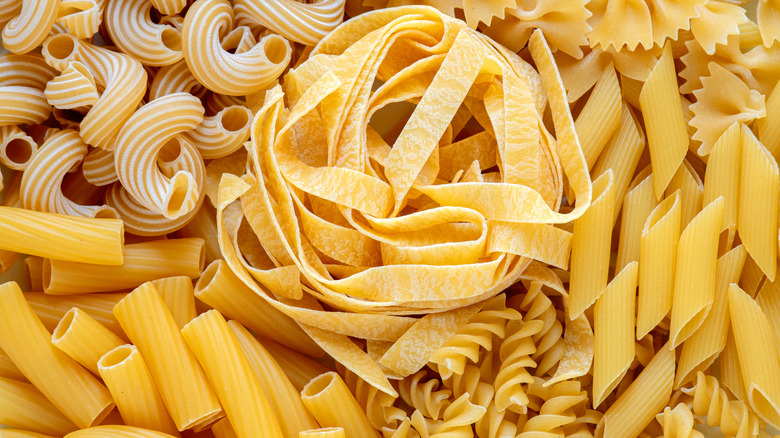New Study Finds No Link Between Refined Grains And Diabetes Risk
It's not news to say diabetes is a serious issue in America. The health costs alone are staggering; Americans pay nearly $327 billion dollars annually (which includes the cost of lost wages due to illness), according to the latest statistics released by the Centers for Disease Control and Prevention. Per Reuters, deaths from the disease have exceeded 100,000 in each of the last two calendar years. Even more troubling, as Medical News Today reports, expert estimates project that by the year 2030, over 11% of adults will suffer from type 2 diabetes.
Diet plays a part in all of this, elevating the risk for those who eschew fruits and vegetables and indulge too frequently in sugary drinks, according to Medical News Today. But another piece of the dietary puzzle has recently been addressed by a commentary in Mayo Clinic Proceedings, which notes that based on the findings of 11 cohort studies involving over 400,000 men and women, there are — with one notable exception — no associated links between refined grain consumption and elevated risk for type 2 diabetes.
White rice was the notable exception among refined grains. Per Mayo Clinic Proceedings, studies have shown that excessive white rice consumption may in fact increase the risk of developing type 2 diabetes, with Asian and Asian American populations most at risk in this regard.
What to know about the study's funding
It's important to note that the author of the commentary published in Mayo Clinic Proceedings – Dr. Glenn Gaesser, a professor at Arizona State University — received partial funding from the Grain Foods Foundation (GFF), according to a press release by the GFF which celebrates his findings. Gaesser's commentary is based on a summary of all relevant studies he found in PubMed and other databases which touched on both refined grain consumption and the elevated risk of type 2 diabetes, the author confirms in Mayo Clinic Proceedings.
The Dietary Guidelines Advisory Committee findings of 2015 and 2020, by the way, both recommend the consumption of a higher percentage of whole grains relative to refined grains, per the Mayo Clinic Proceedings. What's the difference? According to the U.S. Department of Agriculture, refined grains go through a milling process that removes nutritional elements like bran and fiber, which remain present in whole grains.

